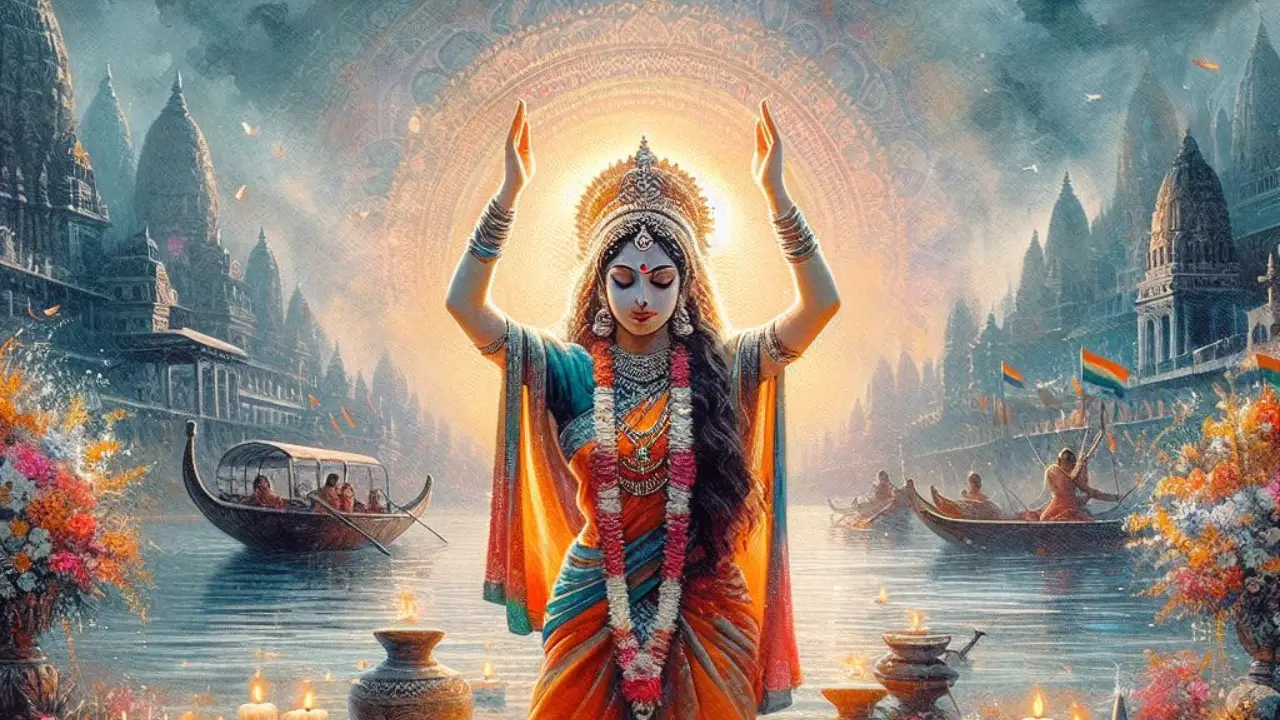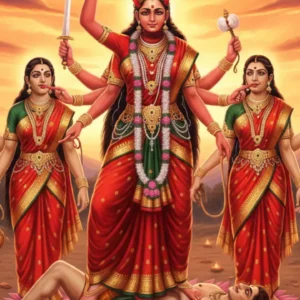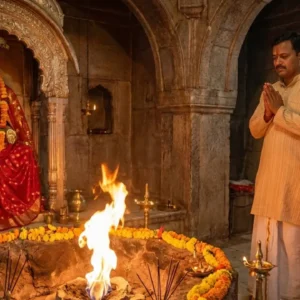The myth of Ganga, the river goddess, is an integral part of Indian mythology. It begins in the heavens, where Ganga was more than a river; she was a celestial entity. Her journey from the heavens to Earth is not just a physical descent but a rich, spiritual narrative that weaves through the fabric of Indian culture.
A King’s Penance and a God’s Promise
At the heart of this tale is King Bhagiratha, a figure of immense dedication. His forefathers faced a dire fate, with thousands turned to ashes due to a sage’s curse. The redemption of their souls depended on the holy waters of Ganga. Bhagiratha’s relentless penance finally moved the gods. Lord Shiva, known for his austerity, acquiesced to assist in this divine mission.
Shiva’s Role in Ganga’s Descent
The descent of Ganga posed a significant challenge. Her formidable force, if unrestrained, threatened to inundate the Earth. Shiva, in a gesture of cosmic balance, captured Ganga in his matted hair. He released her in a controlled, gentle flow. This act symbolizes the harmonization of raw power with wisdom and compassion.
Ganga on Earth: More than a River
Ganga’s arrival on Earth marked a transformation. She branched into various streams, each nurturing the land. But Ganga’s significance extends beyond her physical form. She represents life, purity, and spiritual salvation. Her waters are believed to absolve sins and aid the ascent of souls to heaven.
Modern Resonance of the Myth
In contemporary times, Ganga’s myth holds significant relevance. It symbolizes the urgent need for environmental respect and balance. The challenges Ganga faces today, including pollution and ecological strain, reflect the broader issues confronting our planet. Her story compels us to act responsibly towards our environment.
Personal Reflections: Ganga in My Life
Visiting the Ganges was a profound experience for me. The sense of peace on its banks was overwhelming. Observing devotees in their acts of faith was a powerful testament to the enduring connection between humans and nature.
The Universality of Ganga’s Tale
While rooted in Indian culture, Ganga’s story is universally resonant. It speaks to themes of endurance, hope, and the sacredness of the natural world. These elements are relevant across cultures, highlighting our shared human experience.
Ganga’s Influence in Art and Culture
The myth of Ganga has been a source of inspiration for artists and storytellers throughout history. Her story is depicted in various art forms, adding richness to India’s cultural tapestry. This artistic representation helps keep the myth alive, making it accessible to new generations.
Environmental Lessons from Ganga’s Story
Ganga’s descent offers profound environmental insights. It serves as a metaphor for the judicious use of natural resources. In an era marked by climate change and environmental degradation, Ganga’s journey reminds us of the delicate balance we must maintain with nature.
Ganga in the Global Context
Ganga’s story is part of a larger narrative about the sacredness of rivers worldwide. Rivers like the Nile, Amazon, and Yangtze hold similar significance in their respective cultures. This global connection underscores the universal importance of preserving our waterways.
In conclusion, Ganga’s descent from heaven to Earth transcends its mythological origins. It embodies faith, the importance of nature, and our duty towards environmental stewardship. As we navigate the challenges of modern life, Ganga’s story offers timeless wisdom. Share your experiences, and let’s honor this sacred river, ensuring her tale continues to flow through the annals of time and culture.
I invite you to share your experiences or thoughts related to Ganga. Have you visited this sacred river? How does her myth influence your view of nature and spirituality? Your stories can add depth to this dialogue, celebrating the legacy of this divine river.





